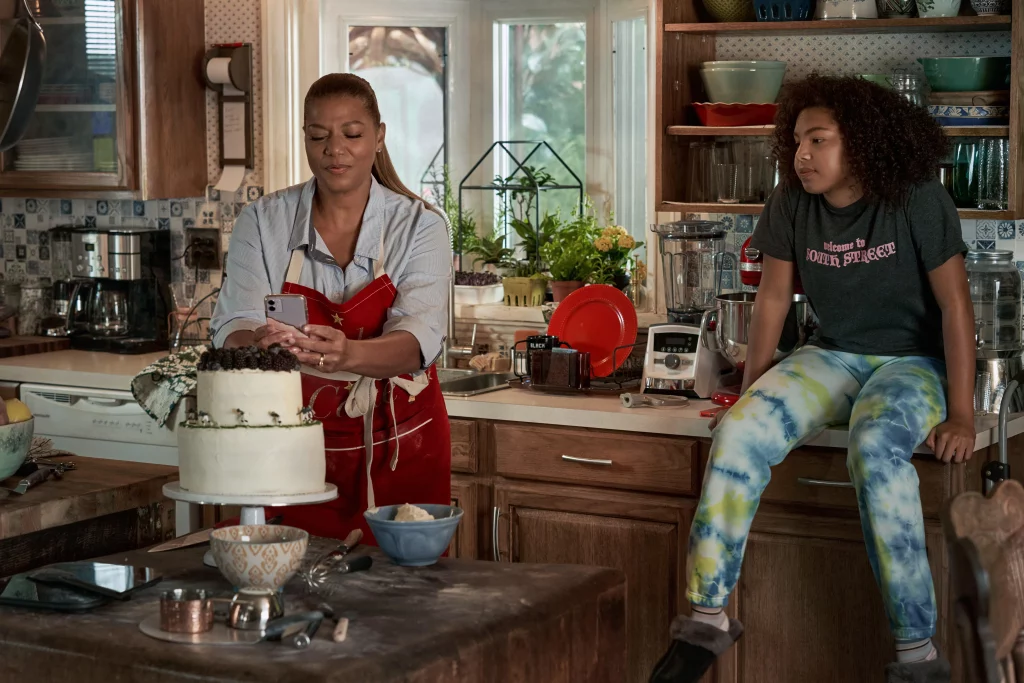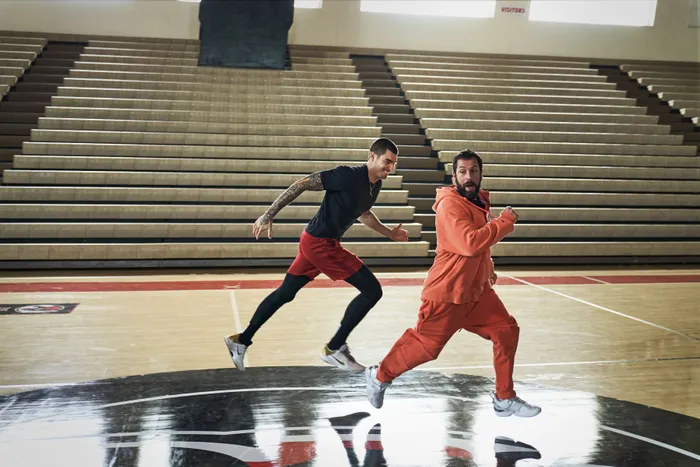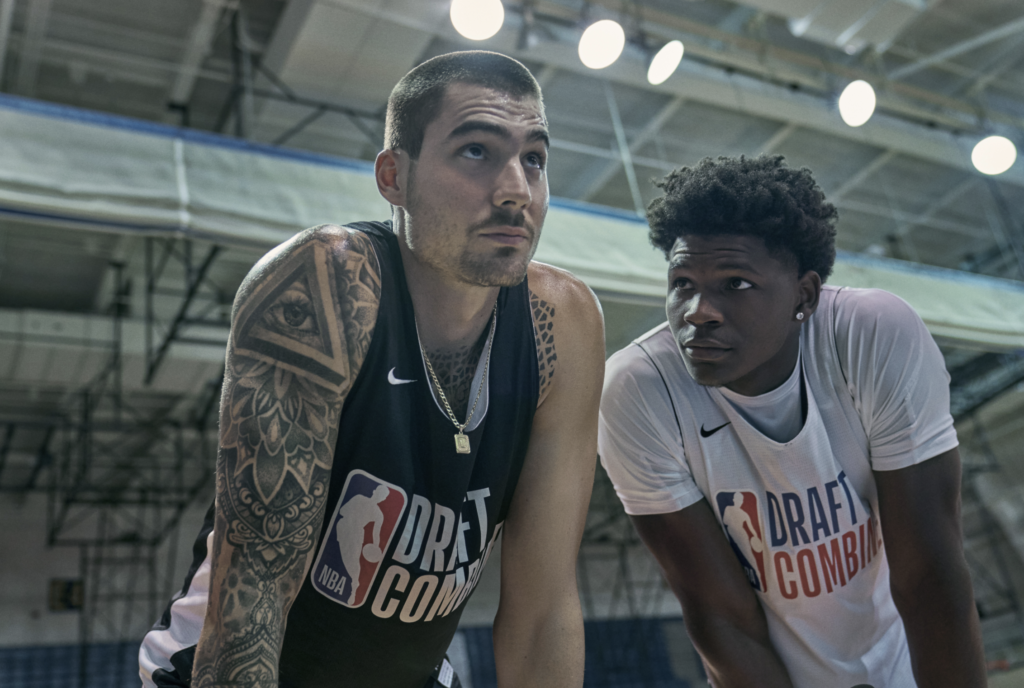Making a Killing in 'Killers of the Flower Moon'
‘Killers of the Flower Moon’ is preoccupied with plot and not on the greater struggle of the Osage.


The sports movie genre is dominated by men. On the big screen, it is strictly guys filming guys playing baseball, basketball, etc, giving each other high fives and starting chants in the locker room. Women rarely get the limelight. There are exceptions, like A League of Their Own, Million Dollar Baby, and Bend it Like Beckham, but overall, female-driven sports pictures just don’t get made despite, what I would imagine, is a yearning fan base.
I’d like to say Hustle is different, but it is not. There are certain pat conventions that persist here. Stereotypical roles like the supportive wife, the lusty love interest, or the cold rich heiress turned team owner are prevalent in sports pictures. In Hustle there is the supportive wife and daughter to Adam Sandler’s Stanley Sugerman, played by Queen Latifah and Jordan Hull respectively. I don’t mean to put down Queen Latifah’s role. She delivers a warm and sincere performance and it should not be overlooked that this is an interracial marriage portrayed on-screen, and an interracial daughter comes out of that bond. This is nice to see, but it doesn’t negate the fact that these are overly-simplified roles that serve very minor purposes in the film.

Hustle is about a basketball scout for the Philadelphia 76ers named Stanley Sugerman. At the start we find Stanley hopping across the globe, searching for undiscovered talent. He’s well into middle-age, drives a shitty car, is tired, and rarely gets to spend time with his family. Rex Merrick, the team owner, played by Robert Duvall, well-aware of Stanley’s predicament, offers Stanley a job as an Assistant Coach for the Sixers. For Stanley, this is great. It’s a job that requires far less travel and lets him spend more time with his daughter as she grows up. Unfortunately, tragedy strikes when Rex dies. The team is left in the hands of Rex’s spoiled and arrogant son Vincent. With Vincent at the wheel, Sunny goes back to being a talent scout, much to his chagrin.
Then something magical strikes. While scouting a player in Spain, Stanley comes across a hidden talent in a pick-up game named Bo Cruz. Sunny thinks he’s found a diamond in the rough. He recruits Bo and brings him back to the United States. It is here where Sunny puts Bo through a rigorous Rocky-esque training regimen in the hopes of getting him recruited by the Sixers.
It’s well into the picture when we get a little backstory on Stanley. He is a former stand-out point guard from Temple University who (spoiler alert) got into a car accident while driving drunk and destroyed one of his hands permanently. We also learn that Bo has some history with domestic violence which sullies his chances of getting recruited by an NBA team.
Both Sunny and Bo face obstacles. But Stanley remains hopeful for Bo, convinced down to his very bone marrow that Cruz can become one of the basketball greats if he’s just given the opportunity.

The training sequences are fun, and well into the film Stanley tries to generate hype for Bo through social media which leads to some fun montage bits. Aside from what I’ve mentioned regarding the reduced and conventional female roles in the film, I thought Hustle was an entertaining and enjoyable sports picture.
An element I’d like to discuss is authenticity. Most sports movies strive for accurate, true-to-life depictions of athletes in the throes of intense competition. Films like Blue Chips, Hoosiers, and The Fighter gain credibility by blurring the line between real and fake when it comes to portraying sports in all its glory. It can be real athletes playing fictional characters or actors playing fictional athletes. Sports films are most successful when blurring this line, embedding actors into these quasi-fictional settings that also include real players or coaches.
The strategy is done well here. While Adam Sandler’s Sugerman is clearly a fictional character, he’s surrounded by real-life basketball celebrities like “Dr. J” Julius Erving, Tobias Harris, and Tyrese Maxey. There are also characters like Leon played by former pro Kenny Smith and Kermit Wits played by real-life number-one draft pick Anthony Edwards.

As a big fan of basketball, I’m very picky about the kind of game sequences produced in these films. Again, I stress authenticity. It helps to see very convincing gameplay. This requires casting real professionals, precise staging, and careful editing. Sometimes it works and sometimes it doesn’t. These scenes tell a story so it is important that they are done well and effectively. White Men Can’t Jump is a great example of true-to-life basketball playing while something like The Mighty Ducks or a few of the Rocky sequels lack that sort of realism in their treatments of hockey playing and boxing respectively.
As far as performances go, Adam Sandler does an okay job. It’s a bit one-note. Also for a serious role, he’s a bit too serious, rarely smiling or making jokes at all. Real-life NBA ball player Juancho Hernangomez plays Bo Cruz and he does an excellent job. He’s very convincing as an international prospect with a somewhat troubled past. Certain scenes require a depth of emotion and he succeeds in delivering that.
Rounding out the cast is Heidi Gardner as the CEO daughter of Rex, Kat Merrick. Gardner is under-used, appearing in two scenes totaling no more than 1-2 minutes of screen time. And keep an eye out for Jaleel White as Blake, a member of the Sixers staff. White’s also primarily known for his role as Steve Urkel on Family Matters.

Sports equal drama. It’s why some of the better sports pictures have almost a universal draw. There are underdogs, villains, and stories of betrayal, loss, and recovery. Hustle covers many of these points and turns out to be a pretty decent picture. My one gripe is to include more women in these films, in roles that are more emotionally complex than the standard housewives and girlfriends. Let’s see women overcome the odds. They do it just as well as men.
Related lists created by the same author
‘Killers of the Flower Moon’ is preoccupied with plot and not on the greater struggle of the Osage.
Related diversity category
This 2023 film serves as the final chapter of the Indiana Jones franchise.
Related Movie / TV / List / Topic
A K-9 police dog goes undercover to stop an illegal animal smuggling ring and learns a valuable lesson along the way.